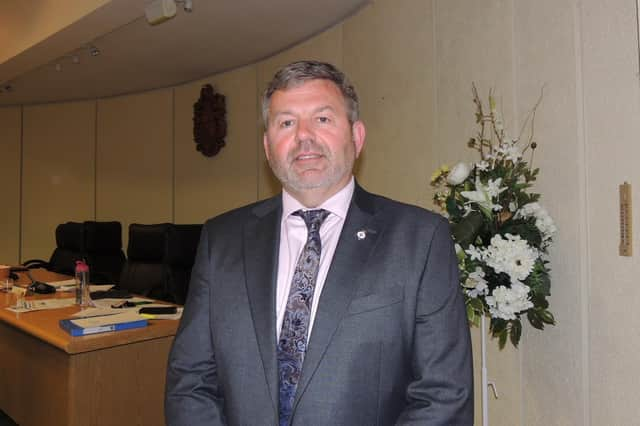Leaders react to provisional Local Government Settlement


This modest increase is set against a backdrop of a 6.5% rise in overall council funding across England, amounting to an additional £4 billion.
However, the reality for Lincolnshire’s councils is a stark contrast, with a mere 4.9% uplift in spending power, insufficient to keep pace with a 6.5% surge in operational costs.
Advertisement
Hide AdAdvertisement
Hide AdThe disparity in funding allocations has sparked concerns, particularly as county councils appear to receive a more significant share compared to district councils. This uneven distribution is exacerbating the financial strain on local services in Lincolnshire, which are already grappling with dwindling resources. The situation leaves councils with limited options, pushing them towards raising taxes and implementing further cuts to maintain essential services.
As Lincolnshire’s councils navigate these financial constraints, the impact on residents and local services is becoming increasingly apparent: higher taxes and reduced services. Councils will also be able to increase council tax by up to 3% without a local referendum with a further 2% for those responsible for adult social care services.
Here’s what Lincolnshire council leaders said about the provisional settlements they received:
City of Lincoln Council Leader Ric Metcalfe (Labour) labelled the news “a disappointment.” He added: “While the average cash increase in core spending power across the sector was 6.5%, the city council received below this average with 4.8%.
Advertisement
Hide AdAdvertisement
Hide Ad“These increases fall short of the level of additional costs that all councils are facing due to inflationary pressures and rising service demands.
“We are in the process of finalising our budget proposals for 2024/25, taking into account the finance settlement, and our executive will consider the proposed medium term financial strategy early in the new year.”
West Lindsey District Council Leader Trevor Young (Liberal Democrat) shared a similar view: “The council was disappointed with the provisional local government finance settlement announcement. The government once again only announced a one-year settlement, meaning the council cannot plan for the medium to longer term with any certainty.
“West Lindsey’s core spending power increased by 4.8%, which was on average lower than county and unitary councils. The government appears to have ignored calls for more equitable and sustainable funding levels, with many grants announced for one year only.
Advertisement
Hide AdAdvertisement
Hide Ad“The council faces pressures from pay inflation and general inflation coupled with rising demands on its services, and will need to look at how it balances the needs of its residents compared to the resources it has at its disposal.
“The council will continue to lobby the government through the Local Government Association and the District Council’s Network for fairer funding and multi-year funding settlements.”
However, North Kesteven District Council Leader Richard Wright (Conservative) welcomed the settlement. He said: “The settlement brought welcome clarity in a number of areas, not least the threshold under which council tax can be increased in order to help meet the increased cost of service delivery and continuation of business rates and New Homes Bonus allocations on the current structure.
“The finance settlement is less than we might have hoped and remains challenging for local government, giving an average uplift in spending power of just 4.9% set against a costs increase of 6.5% in cash-terms across the local authority sector.
Advertisement
Hide AdAdvertisement
Hide Ad“But having anticipated these and similar financial considerations over several years, we have, at North Kesteven, established a strategy that builds a strong financial base with capacity to invest in priorities and services and mitigates against volatility in such settlements.
“For North Kesteven, the financial outlook is sound but challenging, with inflationary pressures, economic uncertainty and increased service demand all contributing. In response, we have a well-established and clear financial sustainability plan designed to boost income, drive efficiency and ensure the books remain balanced.
“We remain targeted in our ambitious plans for championing a district of flourishing communities via climate action, economic development, housing solutions, community development and excellent services.
“Fulfilment of that requires investment in local public services, in a net zero future and devolution to our councils to respond to the service pressures that we see and feel in our communities. Not all of that is within the district council’s gift, but through partnership, advocacy and clarity of purpose, we remain committed to those aims.”
Advertisement
Hide AdAdvertisement
Hide AdMeanwhile, Lincolnshire County Council Leader Martin Hill (Conservative) responded to the news saying: “It’s too early for us to have a clear picture of what our funding allocation might be. We don’t yet have the full detail around this and are working on what this means for our budgets.”